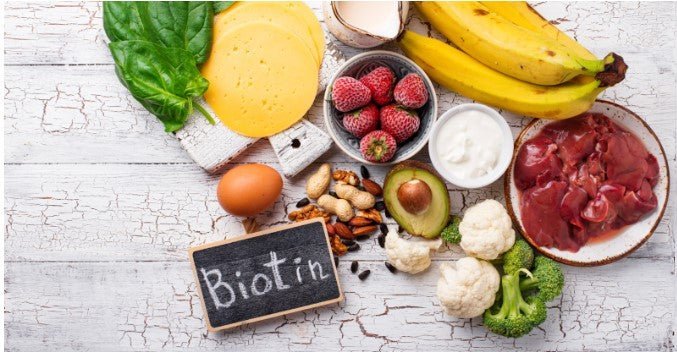When you talk about vitamins that keep you healthy, some names are really common, like vitamin C and vitamin D. But there's another vitamin that often doesn't get enough attention: Biotin.
You might have already heard about biotin if you have looked for ways to grow healthier hair or stronger nails.
But biotin is much more than just a beauty vitamin. In this guide, you will learn everything about biotin and its benefits.
What is biotin?
Biotin is also prominently known as vitamin B7 or sometimes vitamin H. It's a water-soluble vitamin, which means your body does not store it for a long time. Instead, you need to get it regularly from foods or supplements.
Biotin plays a very important role in how your body uses nutrients. It helps break down carbohydrates and proteins into energy. You can think of it like a little helper that turns your food into fuel so you have the energy to go about your daily life.
Without biotin, a lot of body functions would just slow down, and your hair, skin and nails would show signs of poor health.
Why is biotin so important?
Biotin is not just about your hair and beauty, it also impacts other processes in your body. Biotin helps enzymes in your body break down food into usable energy. Without it, you might feel tired and weak. Biotin is also known as the beauty vitamin because it supports thicker hair, glowing skin and stronger nails.
It helps keep your nervous system healthy and supports proper brain function and mood balance. Biotin is especially important during pregnancy as it supports your baby's growth and development.
Health benefits of biotin
A lot of people take biotin supplements to reduce hair loss and encourage thicker, shinier hair.
No doubt it might not turn thin hair into super thick hair overnight, but experts suggest that biotin can improve hair growth in people who are deficient.
If your nails break easily or feel brittle, biotin can make them stronger and less prone to splitting.
Biotin plays a very important role in producing fatty acids that nourish your skin.
A deficiency might cause dry, itchy or scaly skin. As biotin helps in converting food into energy, getting enough biotin means you will be more energetic and active throughout the day.
Biotin supports neurotransmitters, the chemicals that help your brain cells signal. This makes it important for you to focus on memory and mood. As a pregnant woman, you might even need higher levels of biotin. It supports fetal development and lowers the risk of birth defects.
Signs of biotin deficiency in your body
Biotin deficiency is rare because many foods items we consume daily contain biotin, and your gut bacteria also produce a small amount. But some conditions or diets can lead to low biotin levels.
Here are the common symptoms of biotin deficiency:
-
Hair thinning or hair loss (sometimes severe)
-
Brittle nails
-
Dry, scaly skin
-
Red rashes, especially around the eyes, nose, and mouth
-
Fatigue and weakness
-
Depression or mood swings
-
Numbness or tingling in hands and feet
-
Poor appetite
Who is at risk of deficiency?
-
Pregnant women
-
People with certain digestive disorders (like Crohn’s disease)
-
People who consume a lot of raw egg whites (they contain a protein called avidin, which blocks biotin absorption)
-
People who drink heavily (alcohol can lower biotin absorption)
-
People on long-term antibiotics (these kill gut bacteria that make biotin)
Best Food Sources of Biotin
The good news is that biotin is present in many common foods. Here are some top food sources of biotin:
-
Eggs (cooked) – especially the yolk
-
Nuts and seeds – almonds, walnuts, peanuts, sunflower seeds
-
Legumes – peanuts, soybeans, lentils
-
Whole grains – oats, barley, wheat germ
-
Meat and fish – salmon, tuna, chicken liver, pork
-
Dairy products – milk, cheese, yogurt
-
Fruits and vegetables – bananas, avocados, sweet potatoes, spinach, broccoli
-
Mushrooms
Also Read: Top 15 Foods Rich in Biotin for Stronger and Healthier Hair
Biotin supplements do you need that?
Biotin supplements are really prominent, especially for your hair and nail growth. They're available in tablet capsules and even gummies. But do you really need them?
If you're already eating a balanced diet, you might not need extra biotin. Supplements might be helpful if you have a deficiency or certain conditions affect biotin absorption.
Pregnant women should consult a doctor before taking a supplement. Always check the dosage, as more is not always better.
If you are looking for a tasty yet easy way to complete your biotin intake, try Immunosciences Biotin Gummies for healthier hair, nails, and brighter skin.
How Much Biotin Do You Need?
The recommended daily intake of biotin varies by age and stage of life. On average, adults need about 30 micrograms (mcg) per day.
Here’s a simple breakdown:
· Infants: 5–6 mcg
· Children: 8–12 mcg
· Teens: 20 mcg
· Adults: 30 mcg
· Pregnant women: 30 mcg
· Breastfeeding women: 35 mcg
Simple tips to boost biotin naturally
-
You can eat more nuts, seeds and eggs.
-
Always add biotin-rich veggies like sweet potatoes and spinach to your meals.
-
You should avoid eating raw eggs and maintain a healthy gut as your gut bacteria also make biotin.
It is very important for you to stay hydrated later on a balanced diet for overall vitamin absorption.
When should you see a doctor?
If you notice symptoms like unusual hair loss or brittle nails or even skin rashes, it's always a good idea to talk to a doctor. They can check your vitamin levels and guide you on whether you need supplements or not.
Also Read: Biotin Results After 1 Week: What to Expect from 7 to 30 Days
Conclusion
So above all, you need to know that biotin might be a small vitamin, but it plays a very important role in your health.
From converting food into energy to supporting beautiful hair, strong nails and healthy skin, biotin is very important for your well-being.
The good news is that biotin deficiency is rare, and you can get enough of it by eating a balanced diet with foods like eggs and nuts. Supplements can help you in some cases, but they are not a magic cure for all hair or nail problems.
The key is balance, eat well, stay healthy and let biotin do its job.

